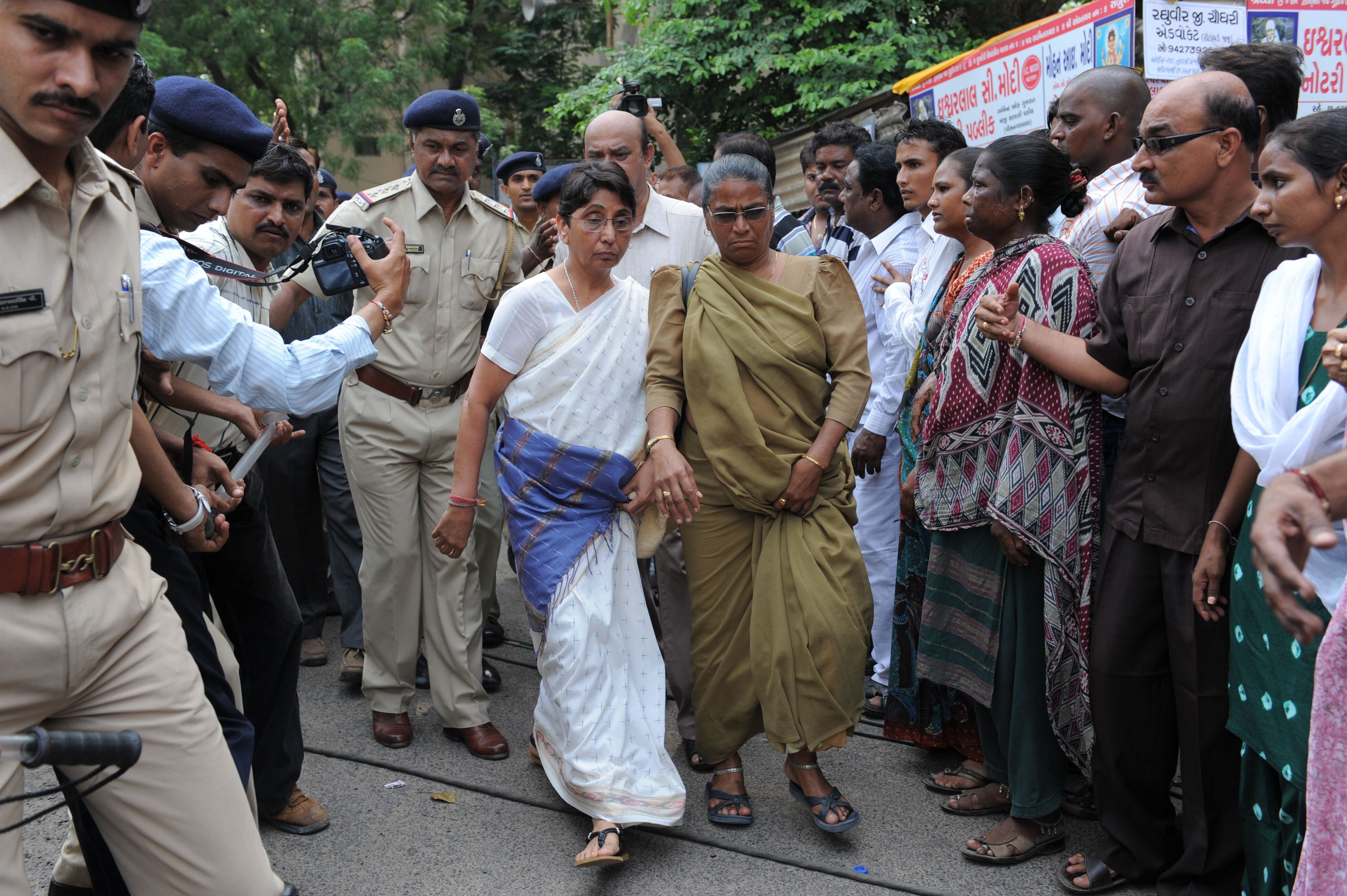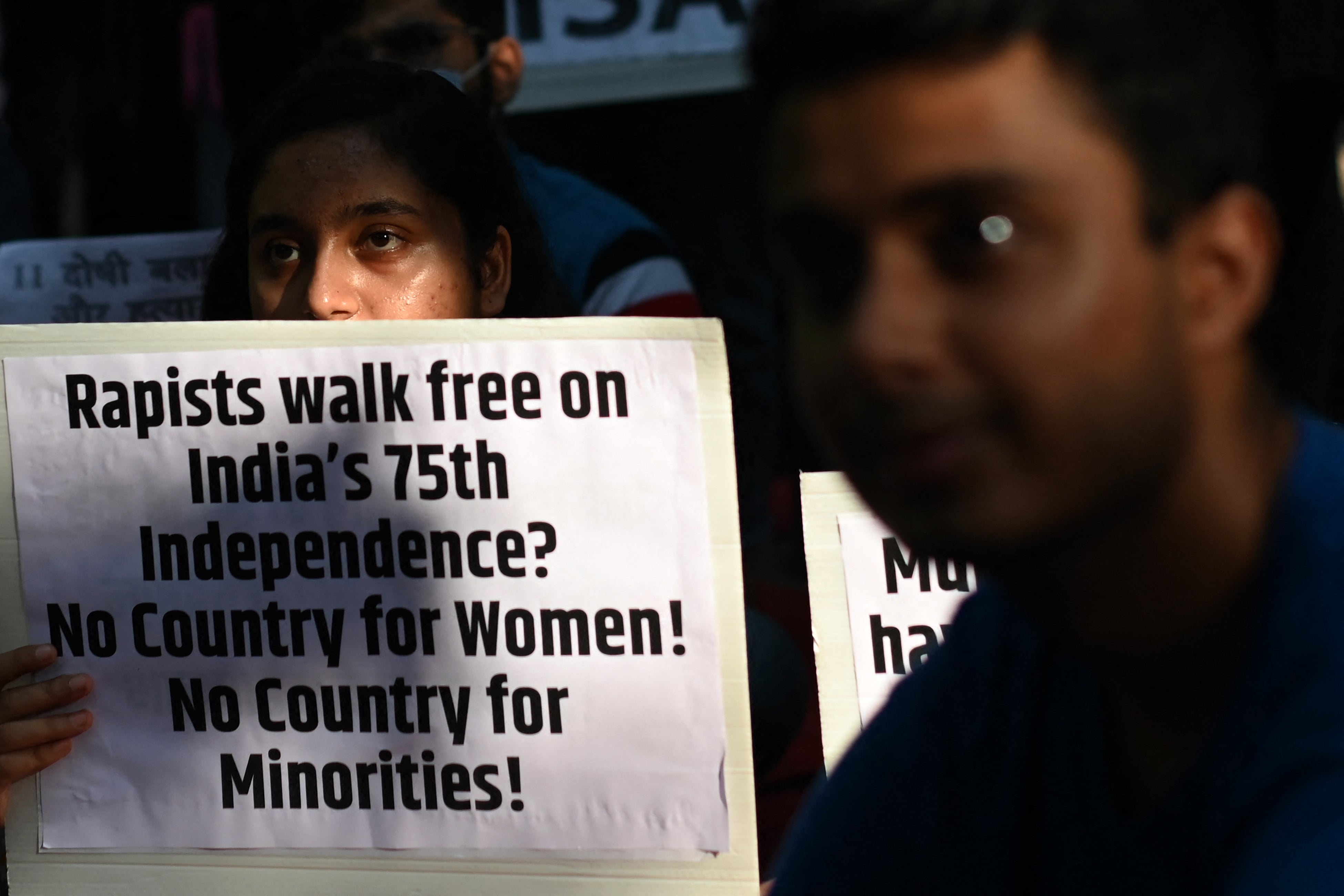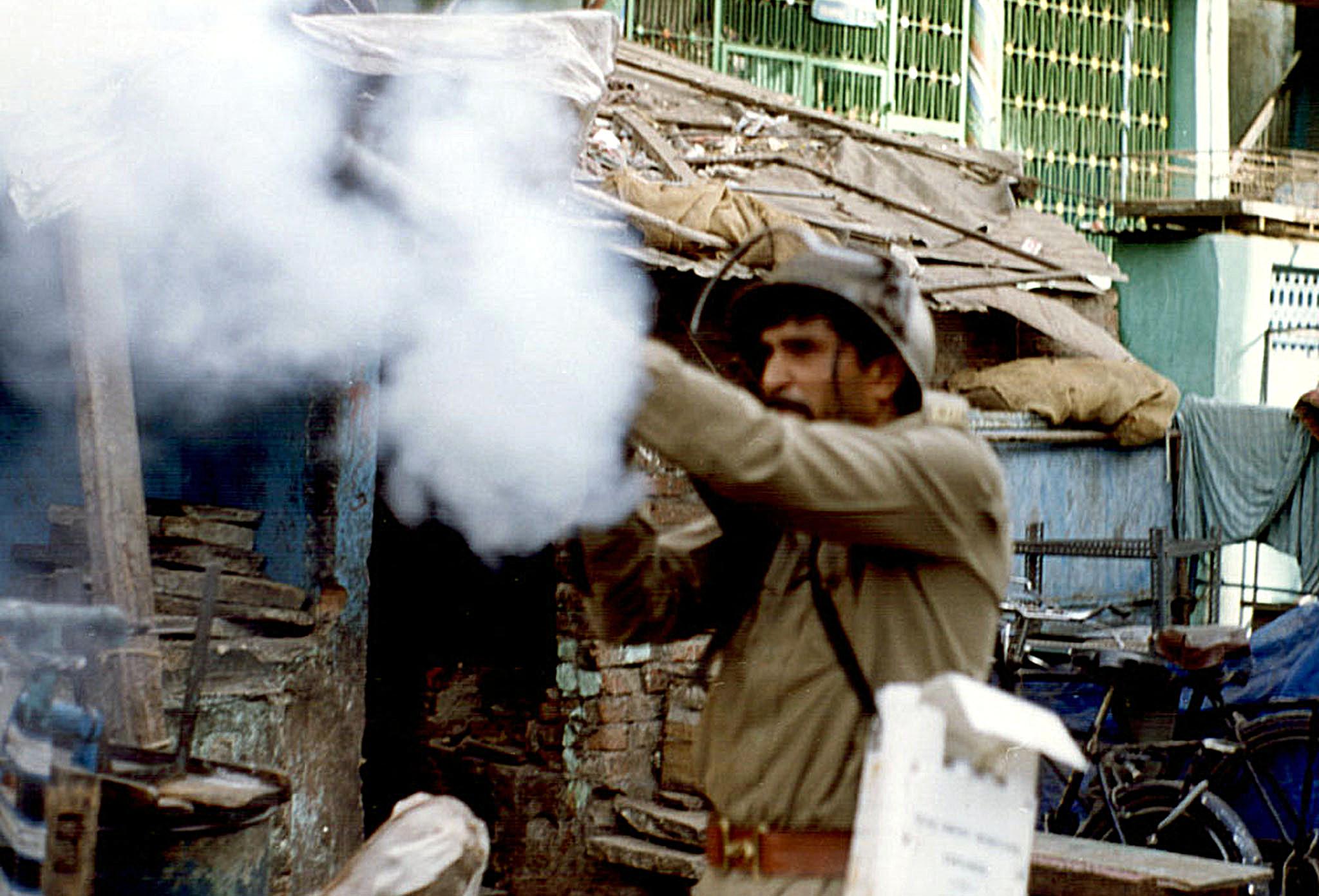Anguish for survivors as all 68 suspects are cleared over massacre of 11 Muslims in India
Witnesses observe ‘black day’ over verdict after trial had six different judges and stretched on for 20 years

A special court in India has acquitted 68 people accused of being involved in a major riot case that had emerged from the 2002 religious clashes in Gujarat.
The Gujarat riots began after 59 people, mostly volunteers of Hindu organisations, were burnt alive inside a train that was set on fire at Godhra station by a suspected Muslim mob.
The Sabarmati Express massacre on 27 February 2002 led to retaliatory violence across the state on an unprecedented scale. While government figures state over 1,000 people were killed in the post-Godhra riots, unofficial estimates have it that over 2,000 people – mostly Muslims – were massacred.
Gujarat is prime minister Narendra Modi’s home state and he was the chief minister at the time when the riots occurred.
One significant incident of violence took place in Ahmedabad city’s Naroda Gam, where 11 Muslims were killed.
On Thursday, special judge SK Baxi acquitted all the accused in the case, including then minister Maya Kodnani and Babu Bajrangi, a former leader of the right-wing Hindu nationalist militant organisation Bajrang Dal.
The Naroda Gam case is one of the nine major riot cases in Gujarat, for which India’s Supreme Court had appointed a special investigative team (SIT) in 2008.
The SIT questioned a total of 187 people and recorded statement of 57 eyewitnesses before filing charges against 86 people, reported India Today. Of these, 18 had died and one person was discharged due to insufficient evidence in the course of the two-decade-long trial that had six different presiding judges hearing the case.
A detailed court order in the matter is yet to be released.
Soon after the announcement of the verdict, slogans of “Jai Shri Ram”(Hail Lord Rama) and “Bharat Mata ki Jai” (Glory to Mother India) were raised outside the court, reported news agency Press Trust of India.
The accused were charged under several sections of India’s criminal code, including murder, attempt to murder, unlawful assembly, rioting, rioting armed with deadly weapons, criminal conspiracy and provocation for riots.
India’s current federal home minister and Mr Modi’s closest aide Amit Shah had appeared as a defence witness for Ms Kodnani in September 2017 to prove her alibi that she was present in the Gujarat state assembly and later at Ahmedabad’s Sola Civil Hospital, and not at Naroda Gam where the massacre took place.

“The truth has truly won today,” said Ms Kodnani upon her acquittal, while the advocate for the victims said they will challenge the verdict before Gujarat’s high court.
“We will study the grounds on which the special court decided to acquit all the accused,” said advocate Shahshad Pathan. “It appears the victims have been denied justice. The question remains as to who burnt 11 persons to death in the presence of policemen?"
Witnesses who gave depositions during the trial called the verdict a “black day” for the victims. “This verdict indicates that those participating in state-sponsored violence against minorities will go scot-free,” Sharif Malek, a 42 year old witness who identified and testified against 13 accused in the court, including Ms Kodnani, told the Indian Express.
“It is an indirect message to people at large. It diminishes our faith in the judiciary and in fact raises questions on the judiciary’s impropriety.”
“I had seen them instigating the mob and signalling them to burn down [the] masjid, to attack particular places,” prosecution witness Imtiyaz Ahmed Hussein Kureshi, who identified 17 accused, told the outlet.
“I saw them burning families to death – five were burnt to death right in front of my eyes – and I identified them. I also remembered the colour of the clothes the accused were wearing. I gave all evidence.
“They should have been punished with a life term. Instead, this acquittal makes us lose our faith in the judiciary. It is a black day for us victims. Those who died, did they die by suicide then? Did they burn themselves to death?”
Ms Kodnani was convicted and sentenced to 28 years in jail by a trial court in a separate case related to the post-Godhra riots in Ahmedabad’s Naroda Patiya area, where 97 people were massacred.
She was later discharged by the state’s high court in 2018.
The current acquittals represent the latest in a series of cases pertaining to the Gujarat riots that have collapsed.
Earlier this month, a Gujarat court acquitted 27 people accused of targeting 11 people, burning them alive and raping a survivor.
The court in its order noted that 190 witnesses examined during the trial either “turned hostile”, had “not supported the prosecution’s case” or were “unable to recall facts or identify the accused”.
In January, 22 suspects accused of killing 17 people were acquitted due to lack of evidence in another city, Halol.
And last August, 11 convicts serving life sentences for the gang-rape of pregnant Muslim woman Bilkis Bano and the murder of seven of her family members during the 2002 riots were released by the state government – sparking widespread furore.

Earlier in January, the BBC released a documentary on Mr Modi’s alleged role in the 2002 riots.
The documentary series, titled India: The Modi Question, aired in January and included a previously unpublished report from the British Foreign Office that held Mr Modi “directly responsible” for the “climate of impunity” that enabled the violence to take place.
Mr Modi has consistently denied accusations of any wrongdoing. Suspicions that Mr Modi quietly supported the riots led the US, UK and EU to deny him a visa at the time, a move that was later reversed.
Blocking the series soon after its release, the Modi government invoked emergency powers under the information and technology law, seeking the removal of clips from social media.
Last June, India’s Supreme Court cleared Mr Modi of any wrongdoing in relation to the 2002 riots after it dismissed a plea challenging the findings of an SIT report that earlier exonerated him as well as 62 other senior government officials.
India’s foreign ministry dubbed the BBC documentary series a “propaganda piece designed to push a particularly discredited narrative” that lacks objectivity and slammed it for “bias” and “a continuing colonial mindset”.
Join our commenting forum
Join thought-provoking conversations, follow other Independent readers and see their replies
Comments
Bookmark popover
Removed from bookmarks